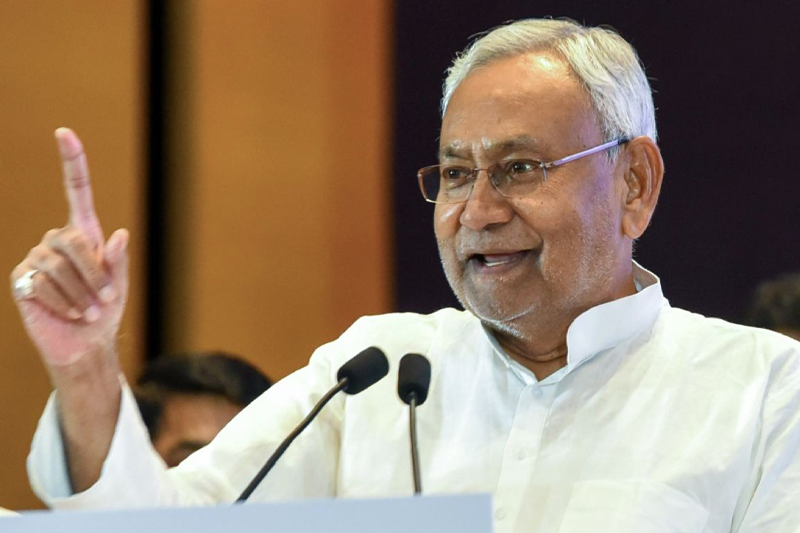
Bihar CM Nitish Kumar Doubles Honorariums for School Cooks, Watchmen, and PE Instructors to Strengthen Education System
In a decisive move aimed at improving the quality of education and uplifting the morale of support staff, Bihar Chief Minister Nitish Kumar has announced a significant hike in the honorariums of cooks, night watchmen, and physical education and health instructors working in the state’s school system. This policy update, revealed on August 1, 2025, is part of a larger initiative by the Bihar government to reinforce its commitment to education and the people who serve within its framework.
A Focus on Grassroots Contributors
Recognizing the vital role of non-teaching staff in ensuring the smooth functioning of schools, Kumar emphasized that these individuals—often overlooked in broader education policy debates—are foundational to the state's education infrastructure.
“Cooks, night watchmen, and physical education and health instructors have played an important role in strengthening the education system,” the Chief Minister noted in a detailed post on X (formerly Twitter).
To acknowledge and reward their contribution, the Bihar government has doubled the monthly honorariums for these categories of support personnel:
- Mid-Day Meal Cooks: From ₹1,650 to ₹3,300
- Night Watchmen (in secondary and higher secondary schools): From ₹5,000 to ₹10,000
- Physical Education and Health Instructors: From ₹8,000 to ₹16,000
In addition to the doubled honorariums, the annual increment for these positions has also been raised from ₹200 to ₹400, signaling a move toward long-term compensation reform.
A Long-Term Commitment to Educational Growth
CM Nitish Kumar took the opportunity to reflect on the state’s two-decade journey in education reform since his government took charge in November 2005. He highlighted that the education budget has seen a nearly 18-fold increase, growing from ₹4,366 crore in 2005 to ₹77,690 crore in 2025.
This substantial increase in funding has been directed toward critical areas such as:
- Recruitment of a large number of teachers
- Construction of new school buildings
- Expansion of core infrastructure in schools
These changes, according to Kumar, have been pivotal in modernizing Bihar’s education sector. However, he also made it clear that such progress would not have been possible without the consistent efforts of non-teaching personnel, who ensure day-to-day operations—from meal preparation to school safety—run smoothly.
Moral and Practical Motivations Behind the Hike
"This will boost the morale of the working staff, and they will perform their duties with greater enthusiasm and dedication," Kumar stated while announcing the revised honorarium structure.
The decision to increase the honorariums is not merely financial in nature—it is also symbolic. It conveys the state's recognition of these individuals as integral to the educational ecosystem. A motivated support workforce translates to better implementation of programs like the mid-day meal scheme, improved student attendance and safety, and a more holistic educational environment that includes physical and health education.
Impact on the Education Ecosystem
This policy change is expected to have wide-ranging impacts:
- Improved Staff Retention: Doubling the honorarium could reduce attrition rates among cooks, watchmen, and PE instructors, who often leave due to low pay.
- Enhanced Service Delivery: With better compensation, staff are likely to be more committed and consistent in their responsibilities.
- Better Student Experience: A well-fed, safe, and physically active student population is better positioned to learn and thrive.
- Positive Community Perception: By investing in school-level support personnel, the state government projects an image of inclusivity and care, which can have ripple effects on community involvement in education.
Beyond Policy: A Shift in Educational Prioritization
While India as a whole continues to grapple with challenges in education—such as dropout rates, gender disparities, and lack of infrastructure—Bihar’s approach under Nitish Kumar has focused on systemic reform. The 2025 announcement is a continuation of his government’s long-standing efforts to build a more inclusive, well-resourced, and efficiently functioning education system.
Rather than focusing solely on curriculum or digital transformation, Bihar’s government has taken a comprehensive view: teachers, infrastructure, and support staff are all vital pillars of a successful education model.
A Model for Other States?
As Bihar takes this major step, other states may look to it as a model for integrating social recognition with policy reform. Increasing compensation for low-income school workers not only addresses immediate economic needs but also enhances the broader learning environment.
Final Thoughts
With this announcement, Nitish Kumar’s administration reinforces its longstanding commitment to holistic educational reform. By focusing on those who often work behind the scenes, the government sends a clear message: every contributor to the education system matters.
The revised honorariums, along with consistent budget expansion and infrastructure investment, show that Bihar’s strategy is not just about numbers or optics—it’s about delivering tangible, inclusive outcomes in education for all.



